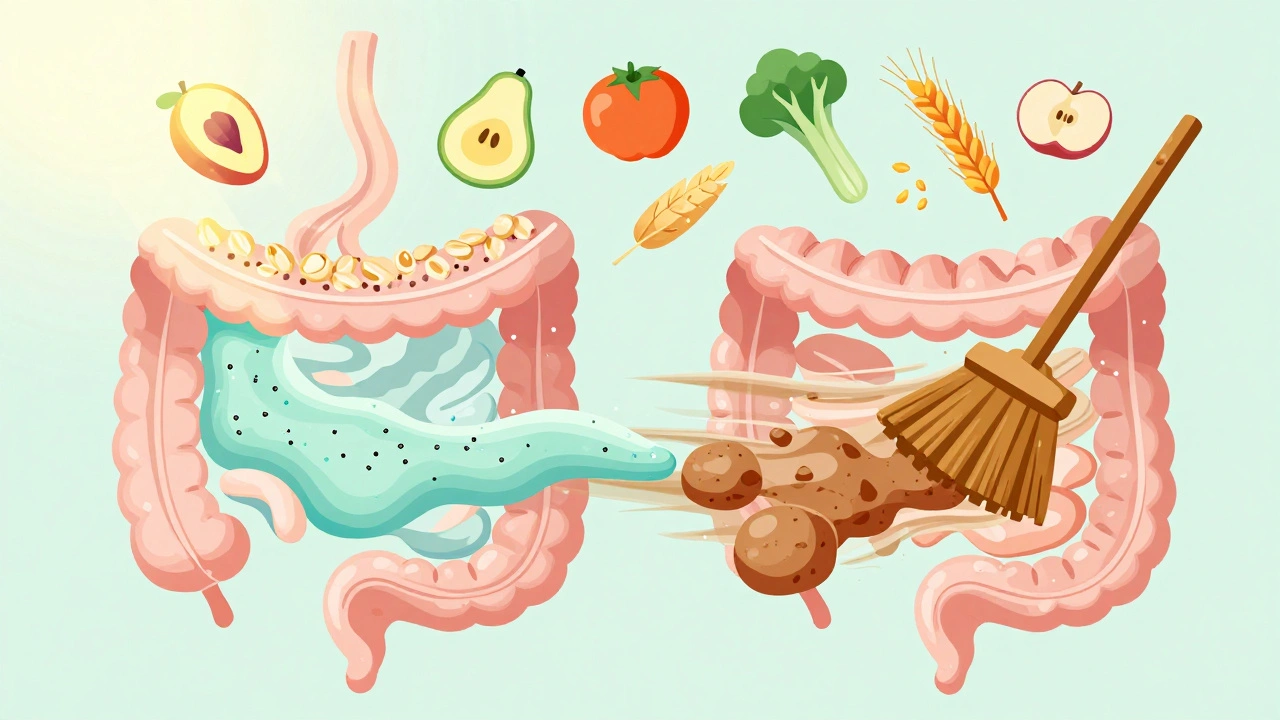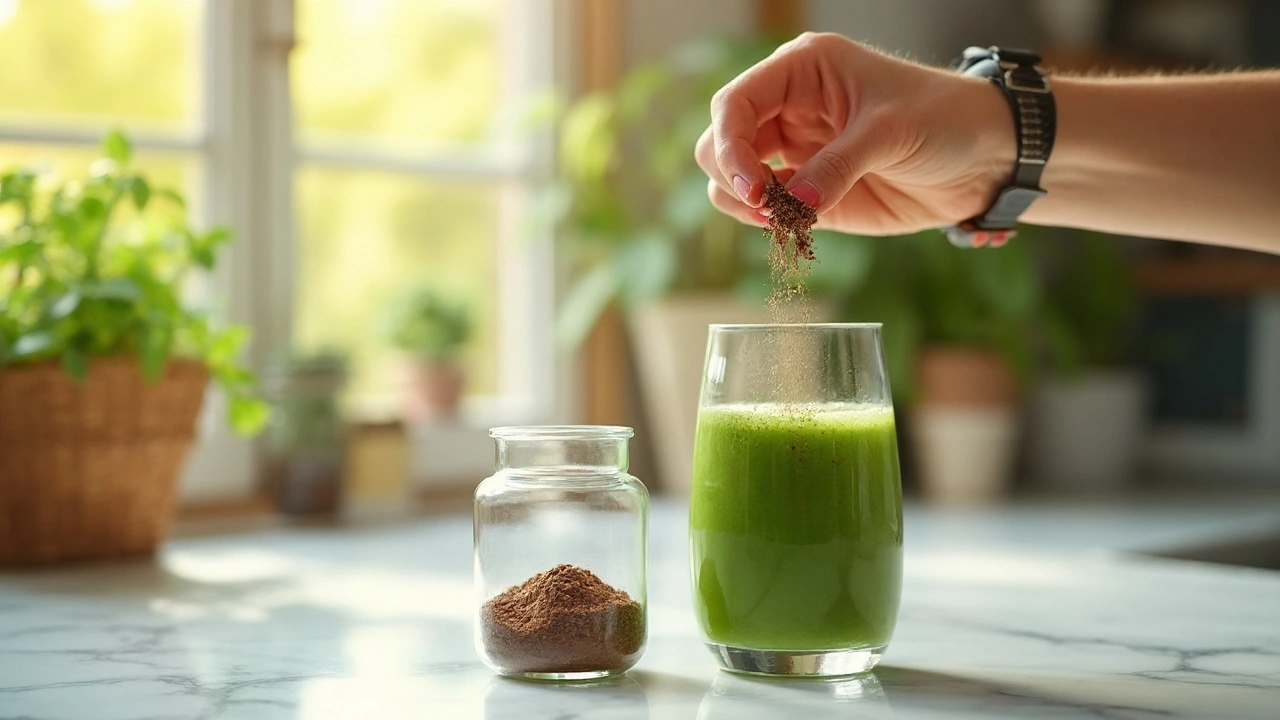Gut Health Made Simple: What Works Right Now
Feeling bloated, sluggish, or just off? Your gut might be the culprit. The good news is you don’t need a PhD to start fixing it. Small, everyday moves can calm inflammation, balance microbes, and keep digestion smooth.
Everyday habits that keep your gut happy
First, hydrate. Water helps move food through the intestines and prevents constipation. Aim for a glass before each meal – it also signals your body to start the digestive process.
Next, chew thoroughly. Your saliva contains enzymes that begin breaking down carbs. The longer you chew, the less work your stomach and gut have to do.
Fiber is a game‑changer. Mix soluble sources like oats, apples, and beans with insoluble ones like carrots and whole‑grain bread. This combo feeds friendly bacteria and adds bulk to keep things moving.
Stress hits the gut hard. A quick 5‑minute breathing exercise or a short walk can lower cortisol, which otherwise makes the gut lining leaky. Consistency beats intensity – a daily habit matters more than occasional long sessions.
Supplements and foods that actually support gut health
Vitamin D isn’t just for bones. Low levels are linked to inflammatory bowel disease, so a daily 1,000 IU supplement can help keep inflammation in check, especially if you live in a cloudy climate.
Digestive enzymes like lipase break down fats efficiently. If you notice greasy stools or frequent indigestion after a meat‑heavy meal, a lipase supplement (500–1,000 IU with each meal) can improve nutrient absorption and ease gut strain.
Super‑plants such as Oriental Arborvitae bring a mix of antioxidants and fiber that supports the gut lining. Adding a small handful of dried bark or a daily tea can give you extra protection against irritation.
Neem, a traditional herbal powerhouse, shows antimicrobial properties that help keep harmful bacteria at bay while supporting the growth of good microbes. A capsule of 200 mg neem extract a day is a practical way to include it.
Probiotic powders or capsules are still a solid choice. Look for strains like Bifidobacterium and Lactobacillus which have the most evidence for improving IBS symptoms and boosting overall microbiome diversity.
Remember, supplements work best with food. Pair a probiotic with a prebiotic snack – think banana, kiwi, or a spoonful of oats – to give the bacteria fuel to thrive.
Finally, keep an eye on any medication that might upset your gut. Drugs like antibiotics or NSAIDs can wipe out beneficial bacteria, so consider a probiotic rescue plan when you take them.
Putting these steps together doesn’t have to be overwhelming. Start with one habit: add a glass of water before breakfast, then gradually layer in fiber, stress‑relief tricks, and targeted supplements. Your gut will thank you with smoother digestion, fewer bloating episodes, and better overall energy. Keep it simple, stay consistent, and watch the change unfold.
Fiber for GI Health: Soluble vs. Insoluble Choices
- Benjamin Aghaki-Allen
- Health
- 14 comment
Learn how soluble and insoluble fiber work differently in your gut to improve digestion, blood sugar, and mood. Discover which foods to eat for constipation, IBS, or diabetes-and why supplements aren't enough.
VIEW MORECatechu: The Essential Supplement for Modern Health Enthusiasts
- Benjamin Aghaki-Allen
- Health
- 16 comment
Discover why catechu, a tannin-rich botanical, is becoming a must‑have supplement for health‑focused people, thanks to its antioxidant power, gut benefits, and support for weight control.
VIEW MOREWheat Bran Supplement: Boost Gut Health, Lower Cholesterol & Manage Weight
- Benjamin Aghaki-Allen
- Health & Wellness
- 17 comment
Discover how wheat bran, a fiber‑rich supplement, can improve digestion, lower cholesterol, balance blood sugar, support weight loss, and reduce disease risk.
VIEW MORECategories
Popular posts
-
Exercise for Weight Loss: Cardio vs. Strength Training - What Actually Works
Benjamin Aghaki-Allen -
Wheat Bran Supplement: Boost Gut Health, Lower Cholesterol & Manage Weight
Benjamin Aghaki-Allen -
Daptomycin Muscle Toxicity: What You Need to Know About CK Monitoring and Symptoms
Benjamin Aghaki-Allen -
Nonallergic Rhinitis: Irritant Triggers and How to Manage Them
Benjamin Aghaki-Allen -
How to Reduce Pill Burden with Combination Medications for Seniors
Benjamin Aghaki-Allen
Popular tags
- side effects
- medication safety
- online pharmacy
- generic drugs
- medication errors
- drug side effects
- dietary supplement
- gut health
- blood pressure medication
- alternatives
- medication adherence
- Hatch-Waxman Act
- drug interactions
- weight loss
- dosage
- weight management
- quality of life
- cheap generic Zoloft
- affordable sertraline
- Claritin


